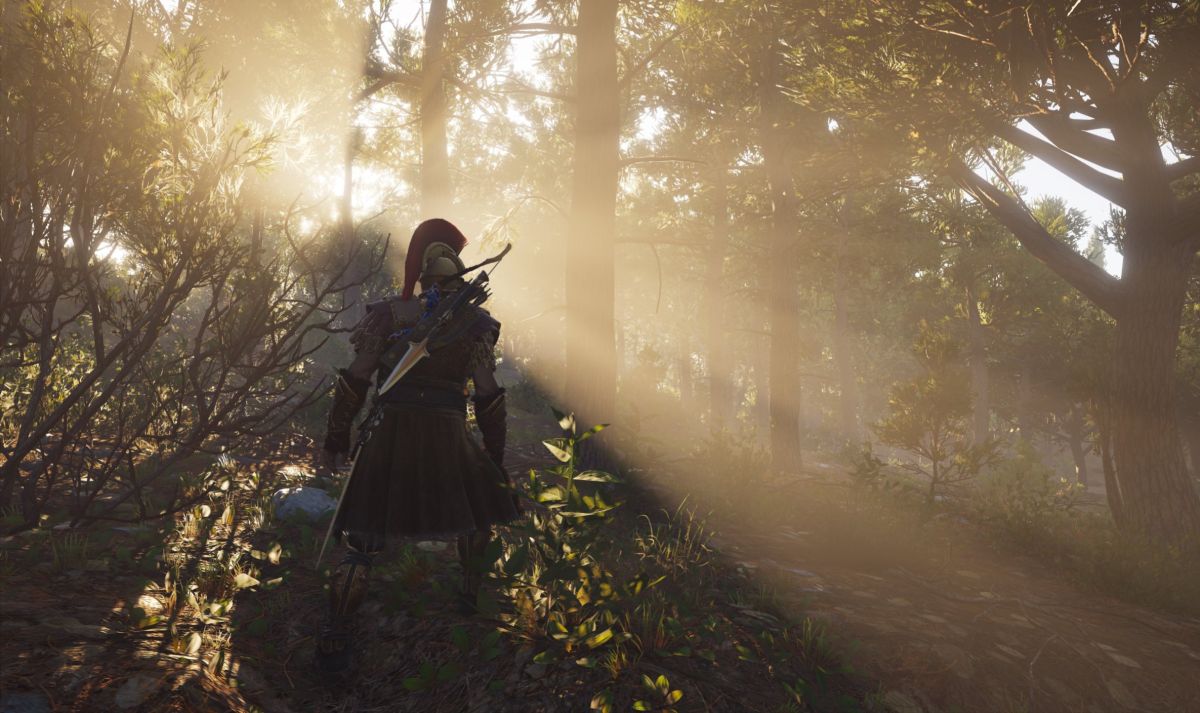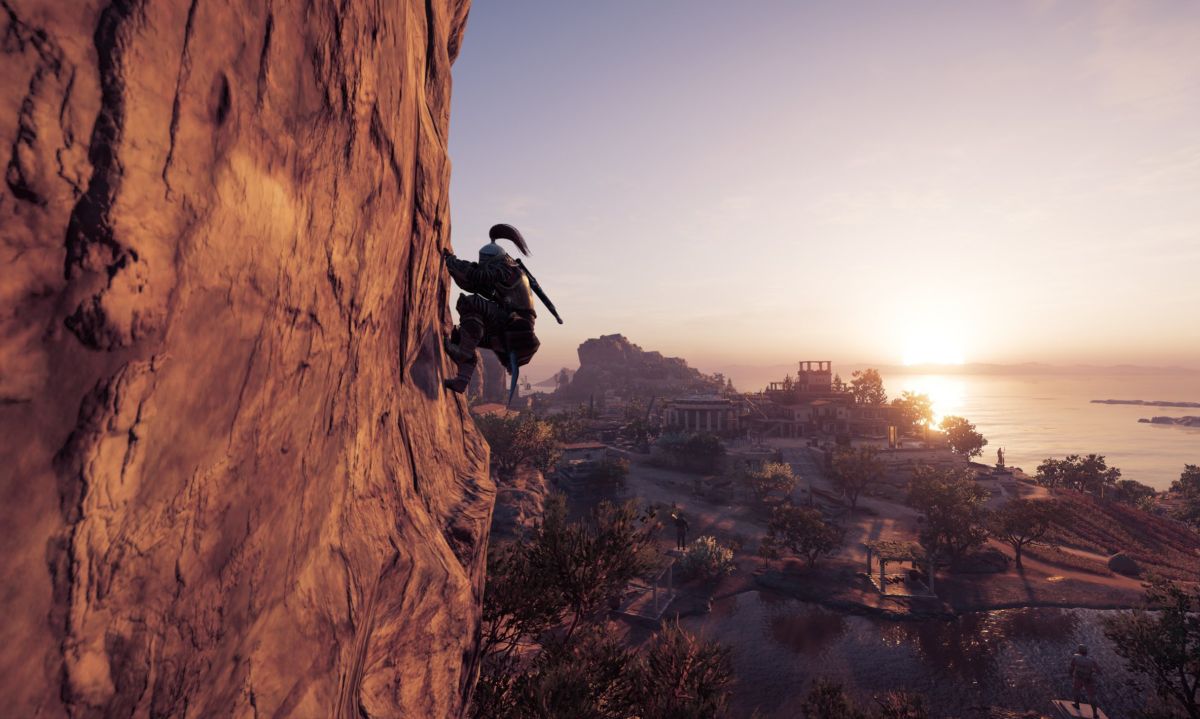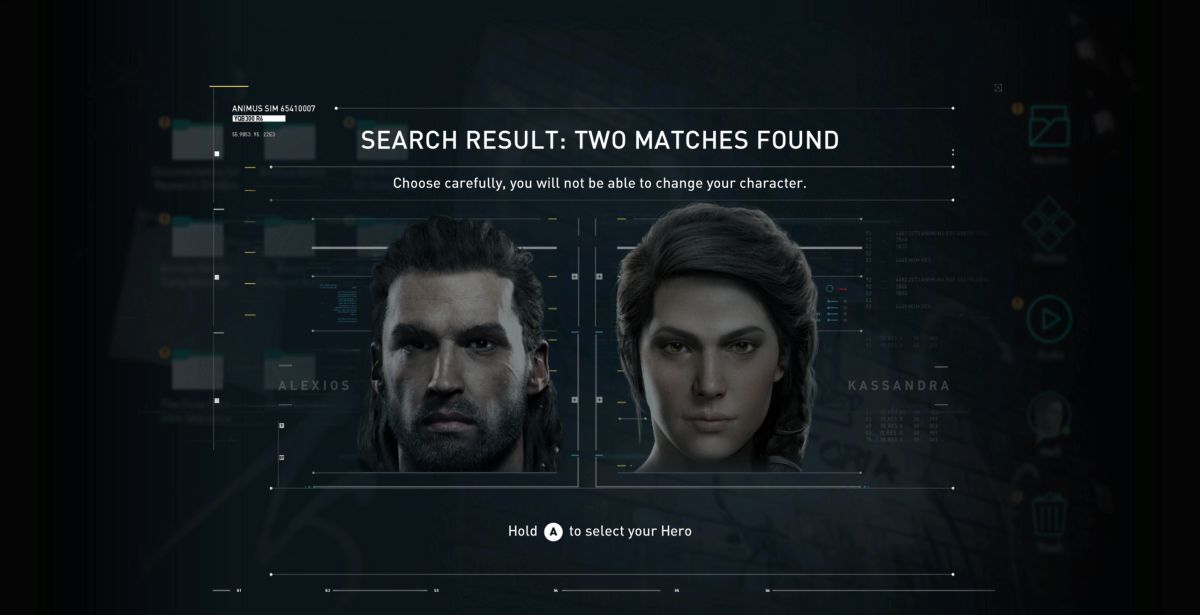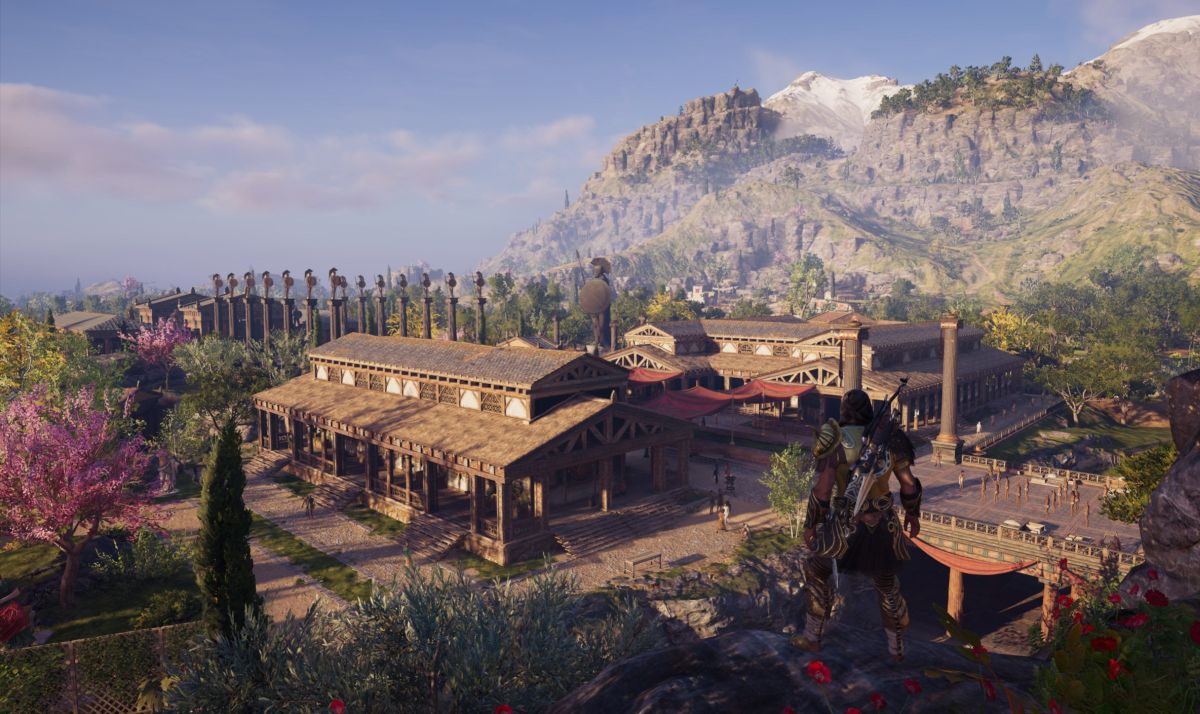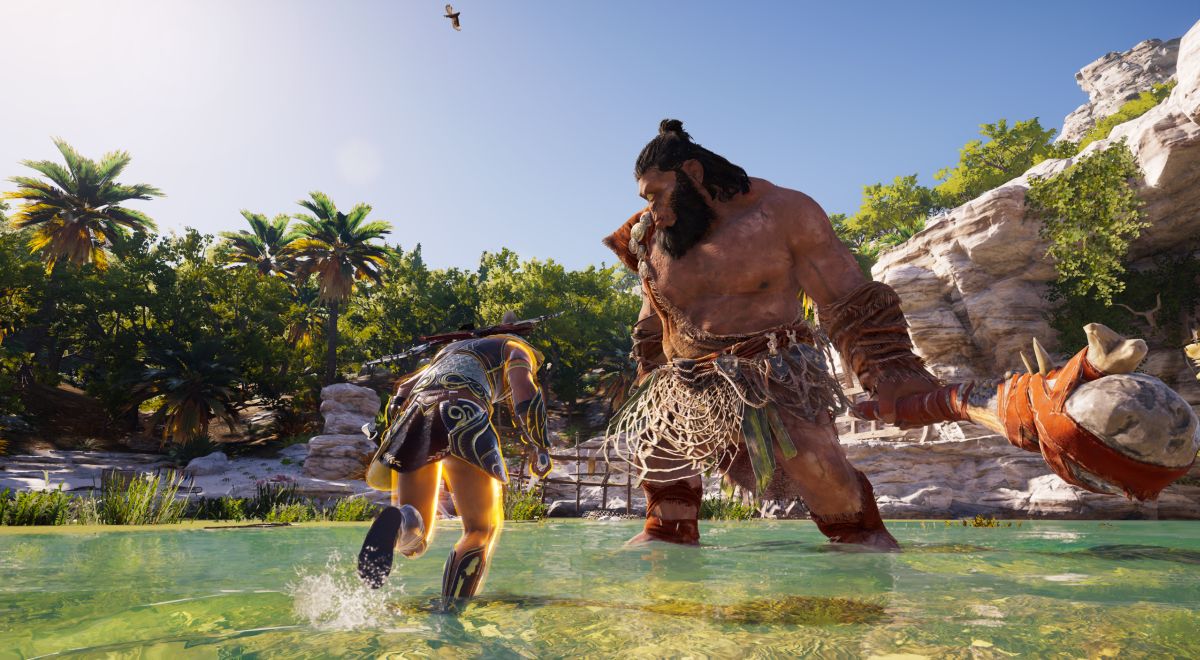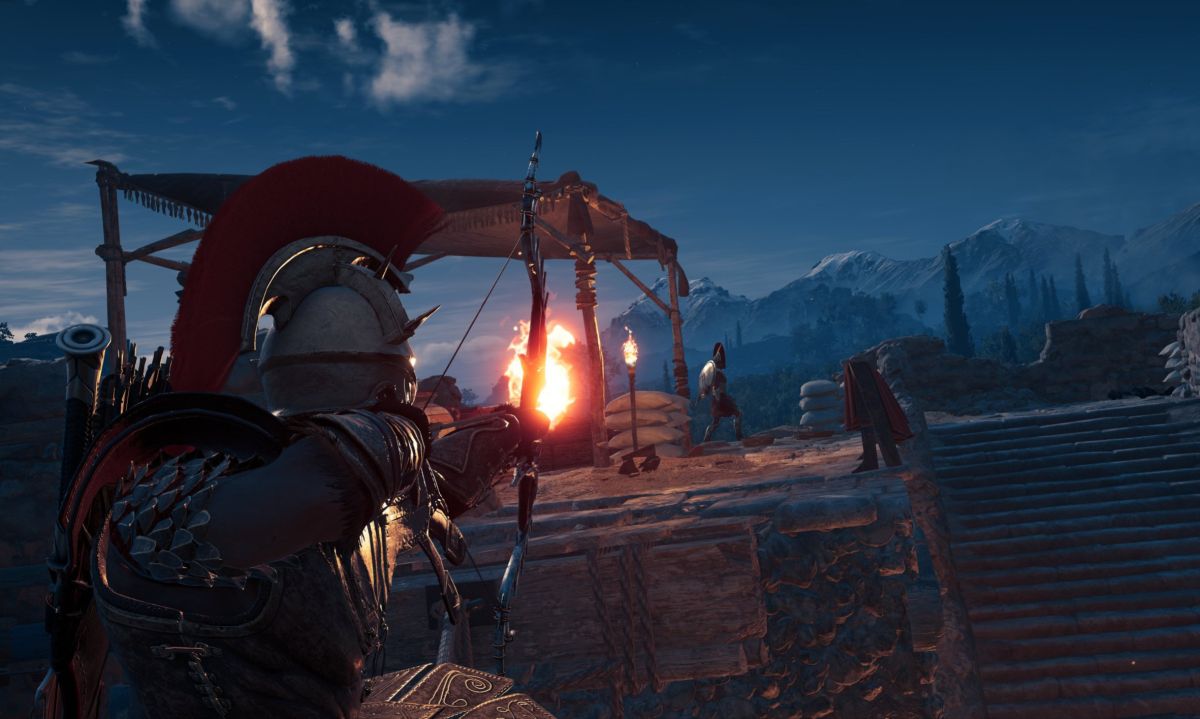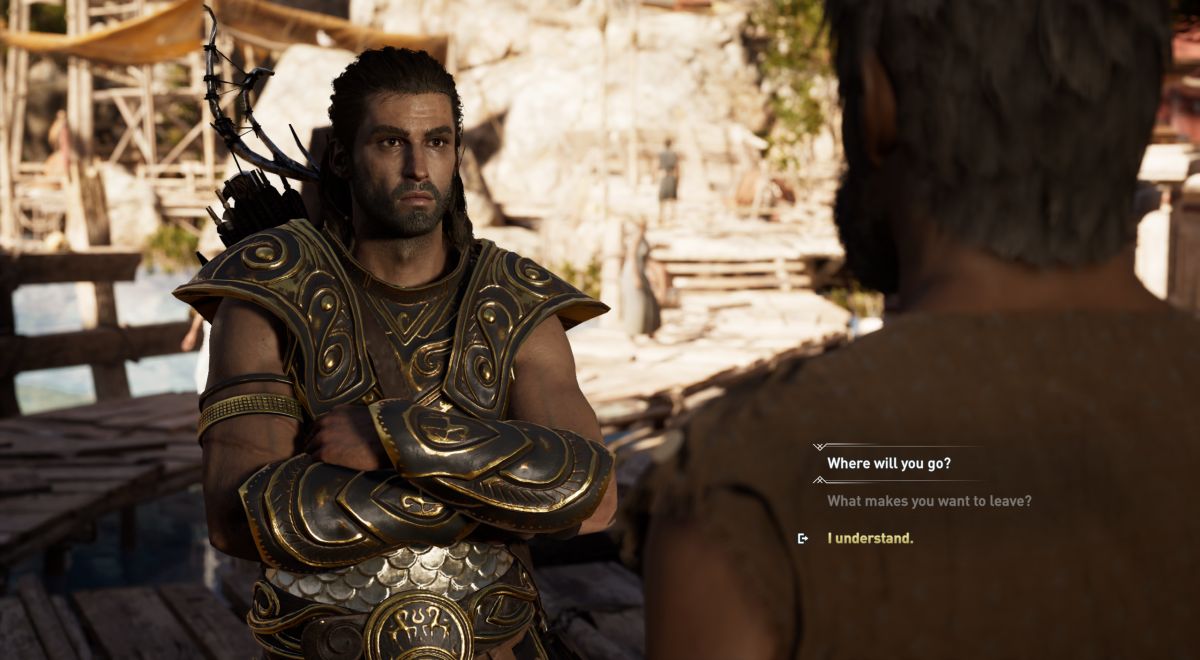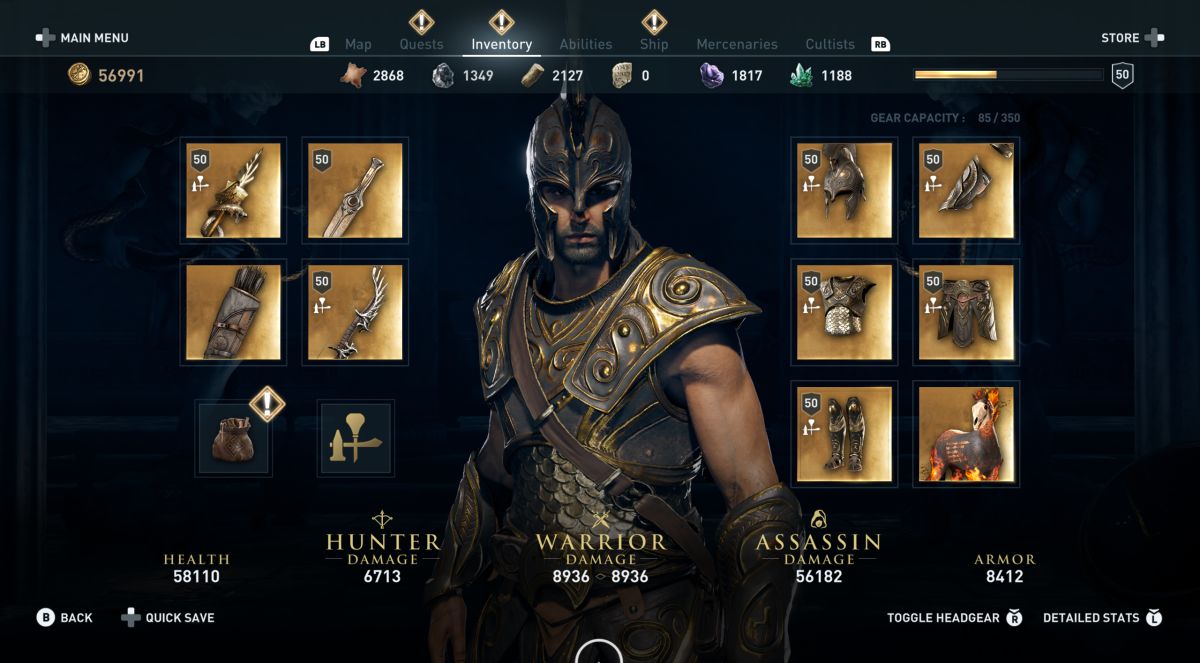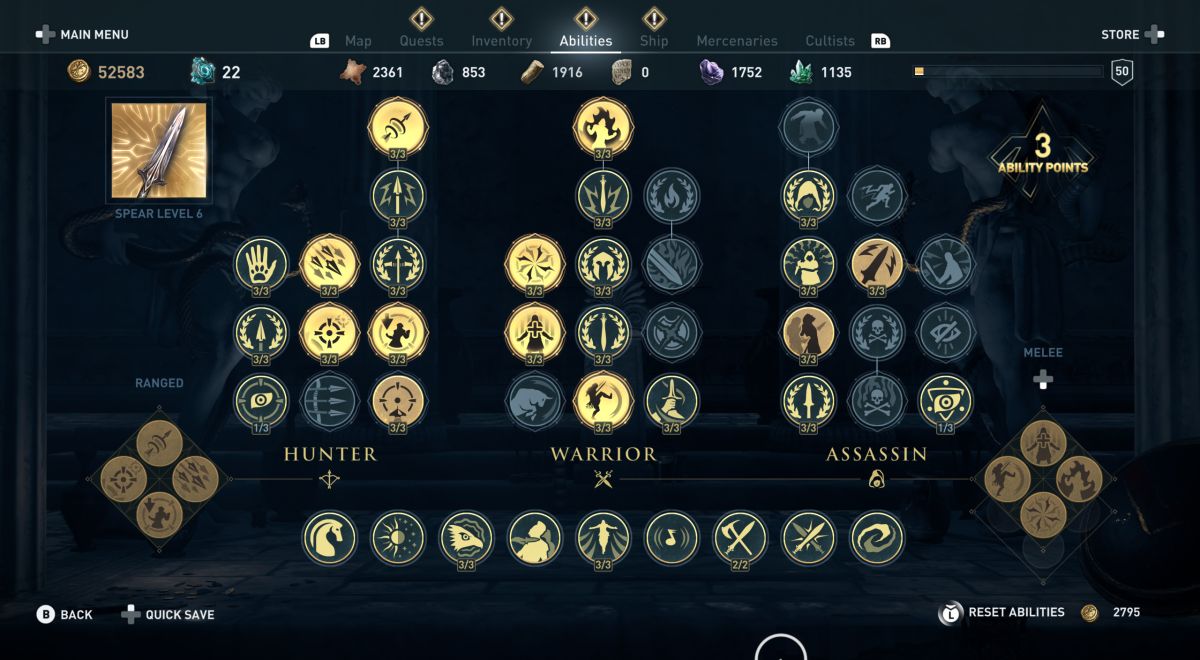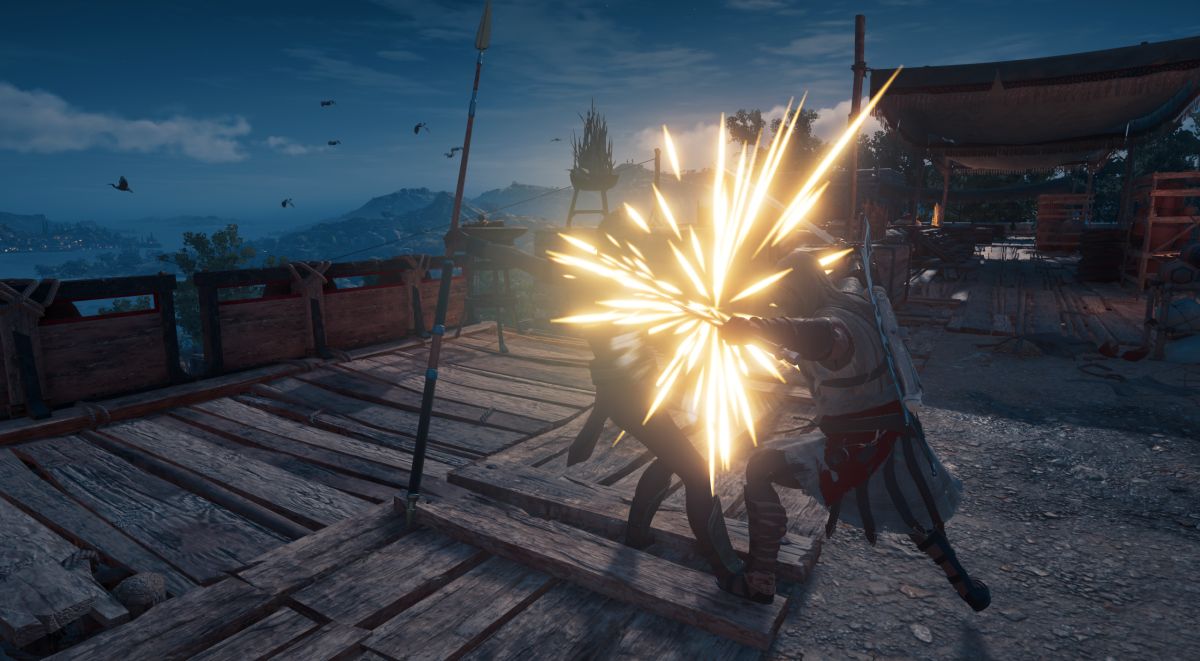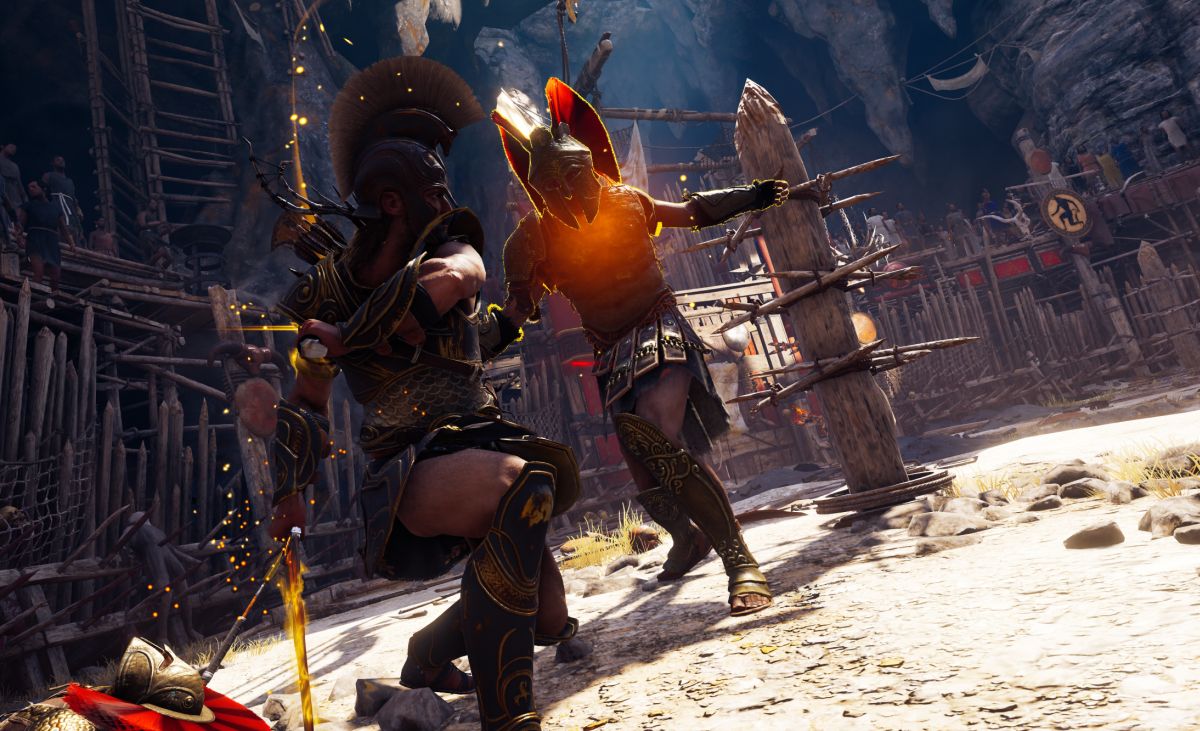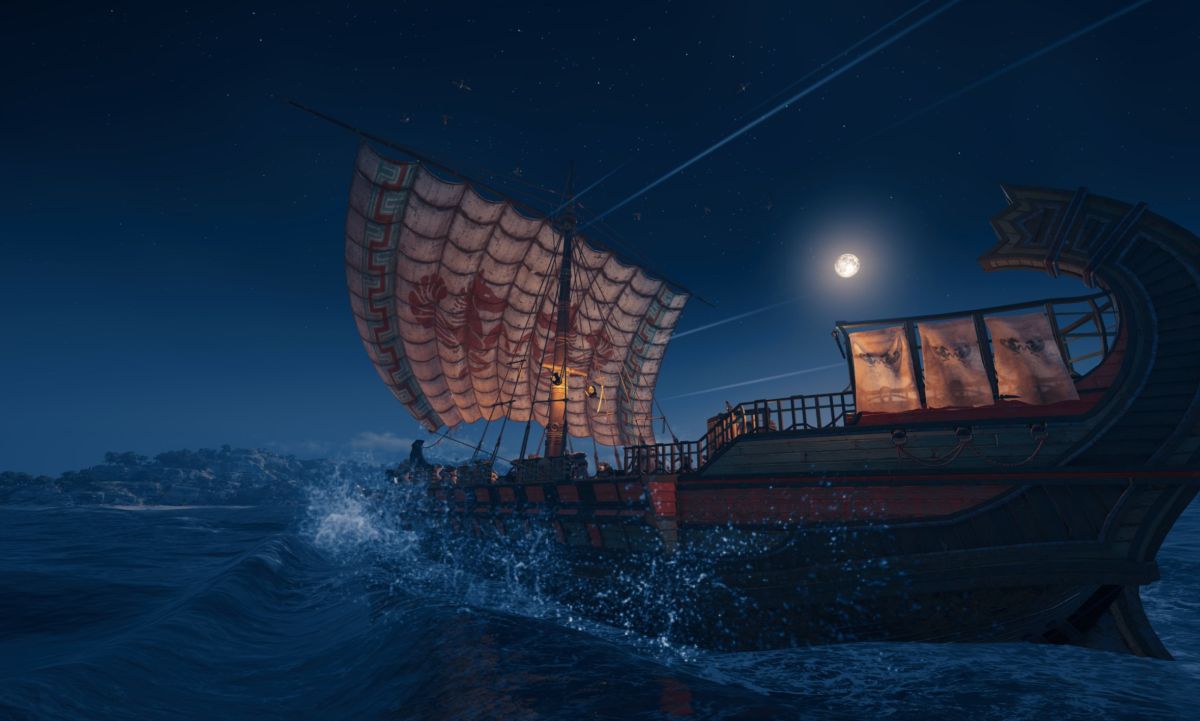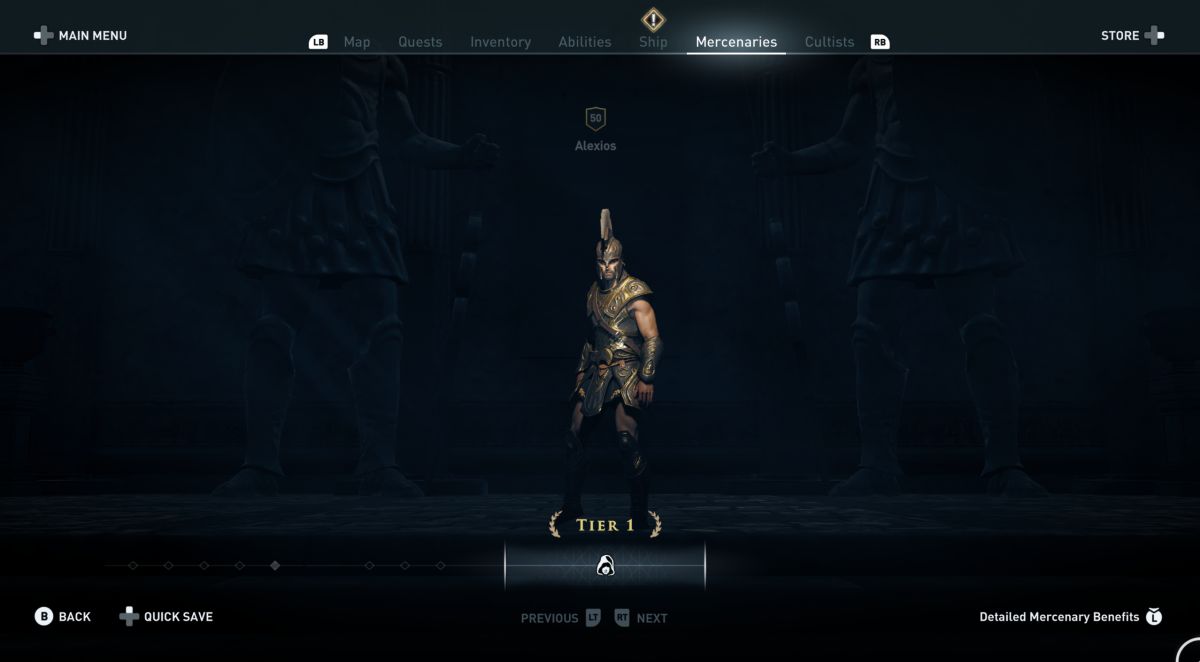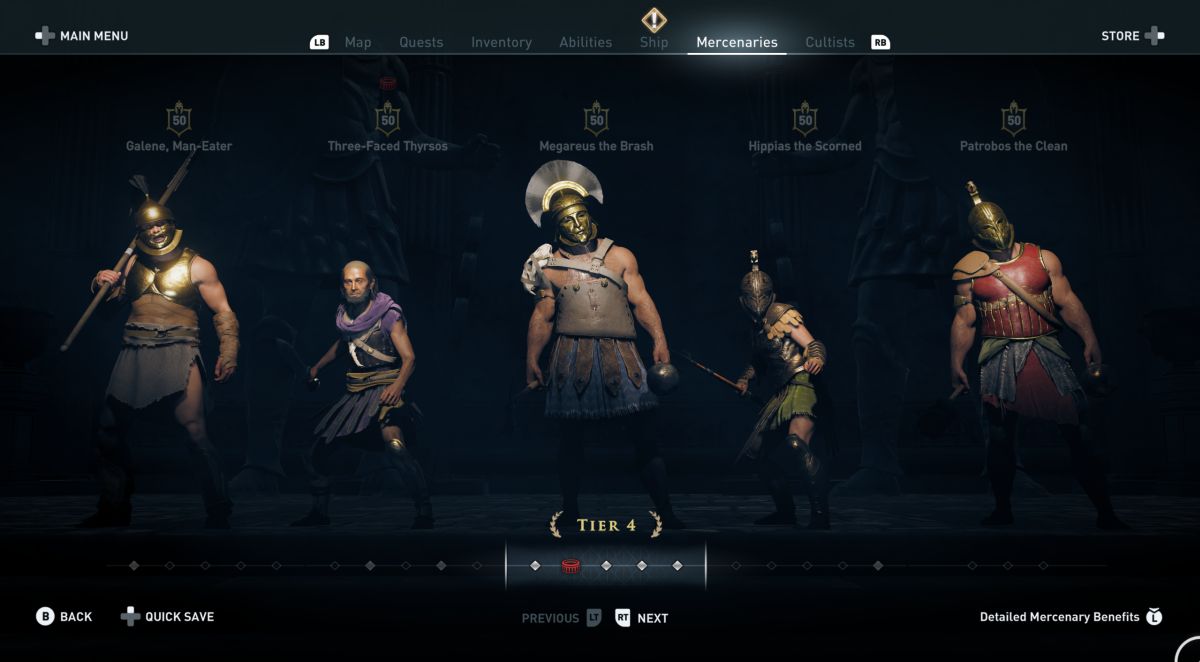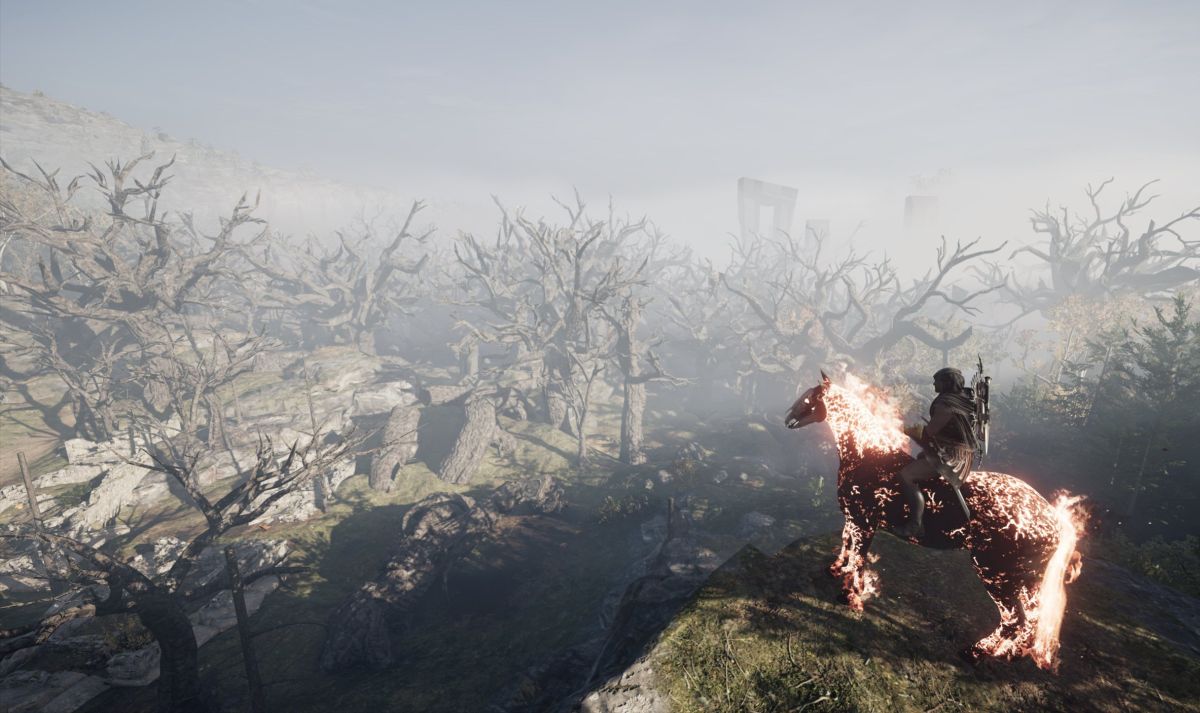Fast forward by a year, and I’ve been playing AC Odyssey for the last several weeks. As is the trend with the franchise, the game takes an even further leap back in into the annals of history. But just like the previous installment, it comes with an equally epic and grand retelling of ancient history.
Graphics
Much like the installment before it, AC Odyssey runs on a heavily modified version of Ubisoft’s AnvilNext game engine. It’s really not wrong to say that there is an immense amount of graphical detail that contributes to the game’s lush and bright world. From each individual pine tree in the large swaths of forest, to the columns of temples and gargantuan statues that pepper the landscape of Athens and its sister cities. Everything in-game looks vibrant and just seems to come alive. Plus, if you happen to have gaming display or TV that supports HDR, the feature quite literally throws in an extra layer of realism with better lighting. Characters – both the main and NPCs – look equally intricate, with the textures sporting enough detail. So much so that you can actually make out the theme of the design of each part. Without having to zoom in on it.
That isn’t to say the game isn’t without its own set of glitches. Throughout the game, I found areas with low-resolution textures, that just never seemed to load properly. There’s also a glitch where climbing certain structures and cliff faces would cause the character to suddenly release their grip. In turn, causing them to plummet without so much as an explanation.
Story
AC Odyssey is set nearly 400 years before the events of AC Origins. The game takes place at the start of the Pelopponesian War; a war between Greek city-states, Athens and Sparta, that started because the former got too powerful. While the historical setting may be real, the main focus (and twist) of the game’s story is one with a theme of family. At the start of the game, players are given the choice between two characters, Alexios (the brother) and Kassandra (the sister). Frankly, whichever of the two you choose to control for the entirety of the game doesn’t matter. Having said that, I should say that of the two, Ubisoft seems to have put more effort and thought into Kassandra’s personality and her interactions with the world.
The starting premise of AC Odyssey is also as simple as it gets; you’re a misthios (Greek for mercenary) who washed ashore one of the many beautiful Greek Islands, who is seeking glory and adventure in the Greek world. Just like any other AC title, the main character will inevitably come into contact with many famous Greek individuals. Including the likes of the philosophical yet immensely irritating Sokrates, or the narcissistic and polyamorous Athenian statesman, Alkibiades. Ubisoft has also been pretty liberal with fictional retelling of Greek mythology within AC Odyssey, and it shows. The game somehow manages to take its own fictional stories of the First Civilisation (known as the Isu) and amalgamate it seamlessly into the fibre and being of the game’s mythical figures.
But while most of us would recognize these mythical beasts, there isn’t any real background as to how these beings came to be. Don’t get me wrong; I actually enjoyed battling these monsters when the opportunity came about in-game. But it really wouldn’t have hurt Ubisoft to put in a little more of a backstory for each of them.
Gameplay
Just as it was with AC Origins, AC Odyssey is an open world game, and exploration is one of the main pillars of it. One major difference here, however, is numerous sidequests available in-game. Compared to AC Origins, I often found myself veering off the beaten path on purpose. Primarily to bring up my character’s level, as well as to beef him up with better gear. Seriously, these quests ranged from a base to raid and ransack, to actually synchronising with an in-game beauty spot that almost always comes with a panoramic vista. There’s even legendary beasts that can be hunted and skinned, either for bragging rights or – as per a quest – for the love of a maiden. True to Ubisoft’s word, AC Odyssey is also the first AC title to feature RPG elements inside the game. For starters, some scenarios now feature several conversational choices. With each answer affecting the outcome, similar to how the speech mechanics worked in CD Projekt Red’s The Witcher 3 Wild Hunt.
Of course, one of the biggest – if not the most obvious – change in AC Odyssey is the leveling system. Alexios and Kassandra’s martial skills and environmental prowess can pretty much be divided into three skill trees: Hunter, Warrior, and Assassin. Compared to the skill tree in AC Origins, these ones look and feel more streamlined. Making them easier to understand. Unlike AC Origins, there’s actually a lot more flexibility in how you spend your points. For a small amount of drachmae (the official in-game currency), you can reset and redistribute all the points to skills that best suit a particular play style. I personally think that this is a major improvement over the last installment, as it allowed me to mess around with the three play styles.
That said, I actually found some aspects of the game a little nonsensical. For example, the ability to charge up your heavy attack to unleash a devastating blow to your foe was once a standard action. In AC Odyssey, you actually have to invest a total three skill points into the Warrior tree before it can be useful in combat. Putting the system into practice, I quickly noticed the difference during combat, when compared to AC Origins. For a start, dual-wielding is an integral part of the character’s combat style, as is two-handed fighting.
The one constant for both styles, however, is the hero’s trusty spear head; an Isu relic that effectively slows down time when you perfectly time a dodge in combat. Combined with right skills, the spear also inflicts devastating blows. Ranging from an overpowering flurry of strikes to shattering the shields of your foes into fragments. There’s a new Conquest mode that becomes available whenever you’ve weakened the leadership of a particular area. When this occurs, you will then have the choice of fighting for either Sparta or Athens, at which point, you will participate in a skirmish between the two nations. Starting a Conquest battle can either be simple or tedious, depending your play style. In my case, I merely found it easier to find out who the head of the region was and assassinate (what else) him. Which is the main pre-requisite for starting the fight.
Naval combat also makes a return to AC Odyssey, though there’s really not much to say about it. It’s an improvement over the (barely existing) naval sequences of AC Origins, but it’s also quite obvious that Ubisoft’s trying hard to emulate the naval mechanics it succeeded in implementing with the pirate-themed AC IV Black Flag.
Mercenary System
One returning feature from AC Origins is the Bounty Hunter system, but is now known as the Mercenaries system. Ubisoft has expanded on this with a notoriety mechanic that builds up over time. To summarise; if you max out your notoriety level, you’ll very quickly find yourself being hunted down by a grand total of five mercenaries at one time. The feature also essentially serves as an in-game ranking system for your character’s Misthios status. There are nine mercenary tiers, with tiers nine to three comprising five mercenaries each. Tier two only comprising three high-ranking mercenaries, and tier one clearly being the top of the food chain.
Killing these mercenaries allows you to rise through the ranks. And in doing so, gain certain boons, such as discounts on repairs or purchases. To make things more interesting, the system randomises and refreshes the list after each slayed mercenary. Giving you the sense that you are always being hunted, no matter where you are.
Conclusion
As a follow-up, AC Odyssey is one of the more engaging – albeit repetitive – titles under the franchise. Sure, the game does borrow several elements from the last installment, but at the very least, the mechanics are still relatively fresh, and don’t suffer from the genre fatigue that plagued the previous titles before AC Origins. This is also the ambitious Assassin’s Creed title that Ubisoft has ever made. With the developer rolling out two additional story arcs in an episodic format starting next year. On that note, it should be pointed out that there isn’t going to be a new Assassin’s Creed title next year. Making this the last installment of the series, at least until the year 2020. That said, I highly recommend that you pick up this strong entry in the series, as it’s still worth owning for the rich retelling of the ancient Greek world.
